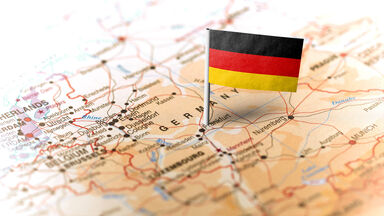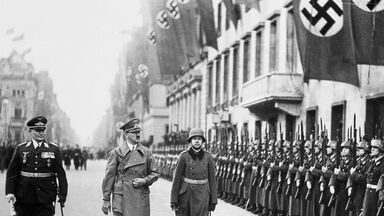This movement, extending in time from about the middle of the 11th to the middle of the 13th century and carrying a stream of settlers and traders from the Northwest, resulted not only in the Germanization of a wide territory but in the extension of German influence along the sea-coast far to the east of actual territorial settlement.
The Germans had for long past given up all efforts at Germanization; their watchword was " maintenance of the national status quo " - that is to say, not an aggressive but a defensive principle.
Bukovina, the chief abode of the Austrian Rumanians, which they shared with the Ruthenians, offered the spectacle of a German adminstration in which without any compulsion German was the official language and also that of society, and neither efforts at Germanization nor language controversies were to be found.
Their presence is largely the result, firstly of a colonization which was favoured by the Bohemian kings and princes of the 12th and 13th centuries, and secondly of a policy of Germanization pursued by the Habsburg rulers from the date of the battle of the White Mountain in 1620 (when the Czechs lost their independence) up till the very close of the World War.
The Roman party recovered its power; Aurelian was again praetorian prefect in 402; and the Germanization which was to befall the western world was averted from the east.





